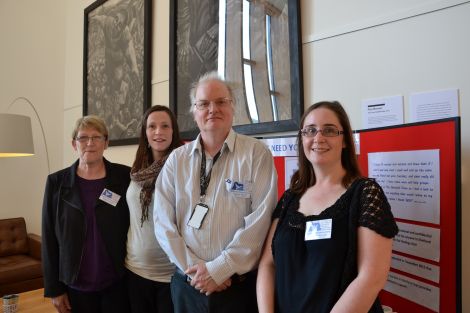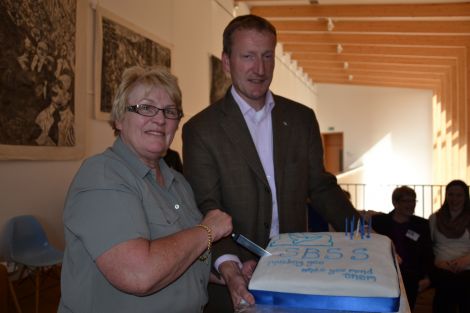News / Bereavement service left bereft of funding
A CALL has been made for public sector bodies in Shetland to recognise the “highly essential” work previously done by a local bereavement service which was suspended earlier this year due to an absence of funding.
Shetland Bereavement Support Service (SBSS) has offered one-to-one counselling to 250 people to help them cope with loss and change since it was founded in 2007.
It initially benefited from a £99,000 Big Lottery Fund grant, which went some way towards covering the operating costs for its first five years.
But seven of the 10 bids for funding SBSS has made since 2012 have been unsuccessful, resulting in its voluntary counselling being brought to a halt at the end of March.
Most of those funding approaches were to foundations and trusts outside the islands – along with a bid last November for £12,000 from Shetland Charitable Trust, which was turned down as the trust is “closed to bids” until 2015.
Fundraising by trustees and donations have raised around £12,000 in the past four years, but SBSS still needs a major backer if it is to resume its activities.
Shetland recorded one of the highest rates of suicide in Scotland in 2013, and SBSS vice chairman Donald Anderson described the funding situation as “immensely frustrating”. Demand is rising – 54 clients were helped in 2013 – and there is no shortage of trained volunteer counsellors.
Speaking at an event to launch SBSS’s business plan for 2014-2019 in the Mareel café-bar on Monday afternoon, isles MSP Tavish Scott urged local policy makers to recognise how “vital” the service is.
“SBSS is an absolutely core part of helping folk in Shetland at the most difficult of times,” he said.
“I just think the testimonials on the board here say it all. They’re very powerful, and for anyone who is a policy maker working in either Shetland Islands Council or NHS Shetland, that’s all you really need to read.”
Become a member of Shetland News
Anderson said there was no other specialist support available for people trying to come to terms with bereavement, something he described as “a big taboo subject” in our society.
“Each year we’ve been seeing more and more demand,” he said. “At the moment we’re not offering the service, which is immensely frustrating for us.”
Administration and expenses – including £9,000 for a part-time admin post – would come to an estimated £27,000 in this financial year and “that’s paying for a service being run as ethically, as efficiently as possible”, he added.
Andrina Tulloch, who was involved in setting up the service before she retired, was “really upset” and “quite shocked” to learn it had been suspended: “It’s one of the things I was really proud we’d managed to get off the ground,” she said.
Testimonials highlighted in the business plan include:
• “Helped me through a complicated bereavement without the need for antidepressants”;
• “I expressed intense emotions without being judged or having to worry about their feelings as I would have with a family member”;
• “I have found counselling hugely beneficial… following my partner’s death”.
Scott said it was a service which “I suspect many people don’t quite understand is so important to people who have no one around”.
“Many families and wider Shetland communities are able to cope with grief and with really difficult sets of personal circumstances because there is that number of people around,” he said, “but for some in our community that doesn’t exist, and that’s why this support service is so vital for Shetland.”
The MSP added that voluntary organisations should not have to be “constantly fighting from year to year about budgets”.
Become a member of Shetland News
Shetland News is asking its many readers to consider paying for membership to get additional features and services: -
- Remove non-local ads;
- Bookmark posts to read later;
- Exclusive curated weekly newsletter;
- Hide membership messages;
- Comments open for discussion.
If you appreciate what we do and feel strongly about impartial local journalism, then please become a member of Shetland News by either making a single payment, or setting up a monthly, quarterly or yearly subscription.





























































